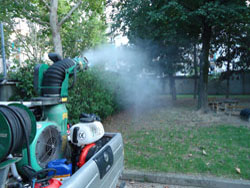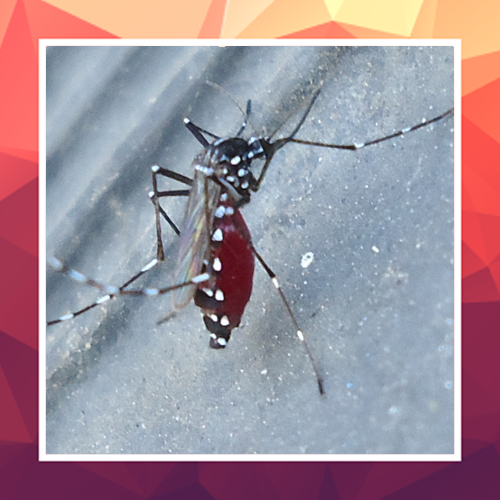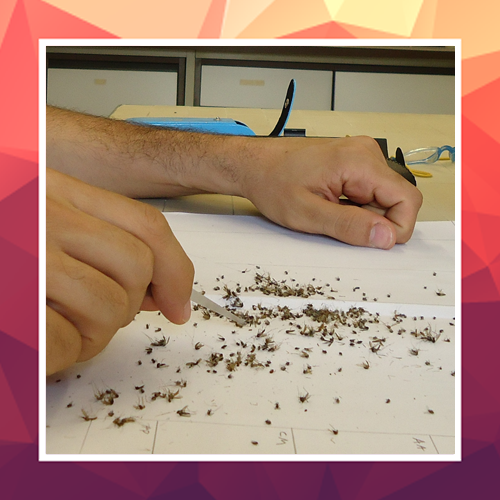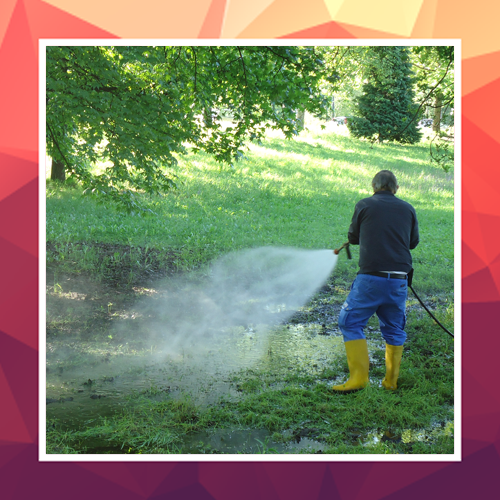Mosquito adulticides

When there is no other solution than an adulticide treatment, and in addition to fully complying with the instructions for their use, it is also advisable to adhere to the following indications:
- expert personnel should use and spray products that are registered as Medical Surgical Devices (PMC) or biocides by the Ministry of Health;
- do not apply the products to the foliage of the trees, but only to low vegetation where the mosquitoes tend to take refuge;
- do not treat agricultural and horticultural food crops, flowering plants (so as not to affect pollinating insects) and surface waters (canals, ponds, etc.): these products are toxic to aquatic organisms;
- preferably execute treatment at night when the air temperature is lower and humidity higher; do not treat when it is windy.
The most common adulticides are products based on natural Pyrethrum (pyrethrins) or Pyrethroids, synthetic and more persistent substances. For example, Permethrin, Deltamethrin, Allethrin, Esbiothrin, Cypermethrin are often found in products which are also available over supermarket counters too. They almost all have the same mechanisms of action and serve to block the insect’s nervous system.
Last modified: Mar 2024










